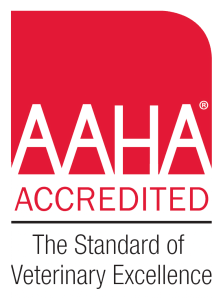
Incontinence
As muscles and nerves weaken with age, just as we see weakness in the hind legs, we can also see weakness in the muscles that control the bladder or rectum in your senior pet. This can result in urinary and/or fecal . Older pets may also have the urge to urinate or defecate more frequently. Hygiene can become an issue if they are urinating/defecating where they lay; this can lead to sores and infection and during the hot summer months “maggot” infestations.
Depending on the severity of their incontinence, a variety of treatments are available:
- Medications can be used to help with urinary incontinence.
- Trimming of fur near the urinary opening, down the backs of the thighs, around the anus and under the tail is recommended. Gently clean these areas with warm water and a mild anti-bacterial soap such as , on a washcloth or small hand towel, to prevent sores/infection, etc.
- Use of a water barrier ointment such as or SSD cream, after cleaning near the urinary opening or rectum can reduce urine scald.
- Sanitary napkins, belly bands, and diapers can be used. Use caution as these may increase the risk of urinary tract and /or skin infections.
- Covering pet bedding with disposable absorbent pads (like puppy training pads or hospital chux)
- It will be necessary to work with one of our veterinarians to frequently monitor for a urinary tract infection and to monitor skin health.
- For cats, having litter boxes with lower walls and in a variety of locations on every floor of the home for easy access is essential.
- Creating an indoor potty area (using puppy pads, dog size litter pans, artificial turf, etc.) for dogs to use “in an emergency” is an option for pets when you are going to be away from home for a period of time.
- Letting dogs outside to ‘potty’ more frequently, can reduce accidents inside.
Appetite
Proper nutrition is vital for energy and maintaining weight. Many common medical conditions that affect our senior/geriatric pets can contribute to a decreased appetite.
Ways we can help our pets maintain healthy energy and weight:
- Appetite stimulants are available in a variety of forms for both dogs and cats.
- Anti-nausea medications can be used in patients with diseases that are known to reduce appetite by causing nausea; these include kidney or liver disease, pancreatitis, certain intestinal disease, cancers, etc.
- Vitamin B12/Cobalamin is a natural appetite stimulant that may be of benefit; it can be given by both oral administration and by injection.
- Encourage appetite by feeding foods that are both enticing, but unlikely to cause gastrointestinal upset such as cooked white rice, cooked noodles, boiled skinless potato, lean cooked protein, protein-based baby food purees. Your veterinarian may have other recommendations based on your pet’s specific medical needs.
Hydration
Just as with food, some of our pets will become disinterested in drinking water. Hydration is important for our pets, especially as they get older. Maintaining normal hydration can improve how our pets feel.
Ways we can help our pets maintain healthy hydration:
- Have multiple bowls of water around the house in easily accessible locations.
- Use a pet water fountain — fresh running water can be more enticing.
- Offer canned food instead of dry; canned food has higher water content.
- Use low sodium chicken broth to mix with their food.
- Try making low sodium chicken broth with gelatin added to create a “treat.”
- For some pets, drinking is not sufficient to maintain healthy hydration. Your veterinarian may recommend giving SQ fluids; our certified veterinary technicians can teach you how to give such fluid to your pet under the skin.
Click here to read Part IV!


